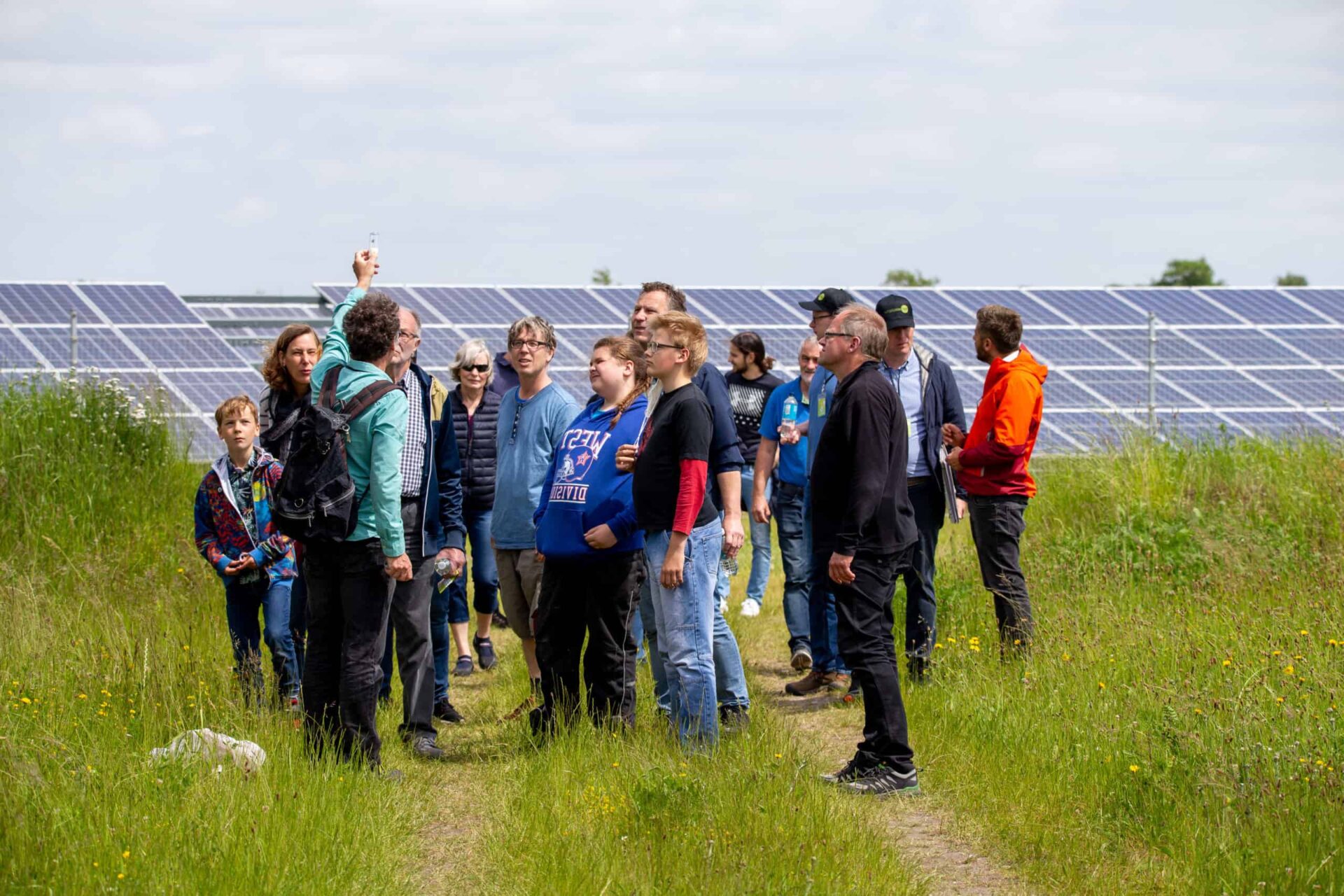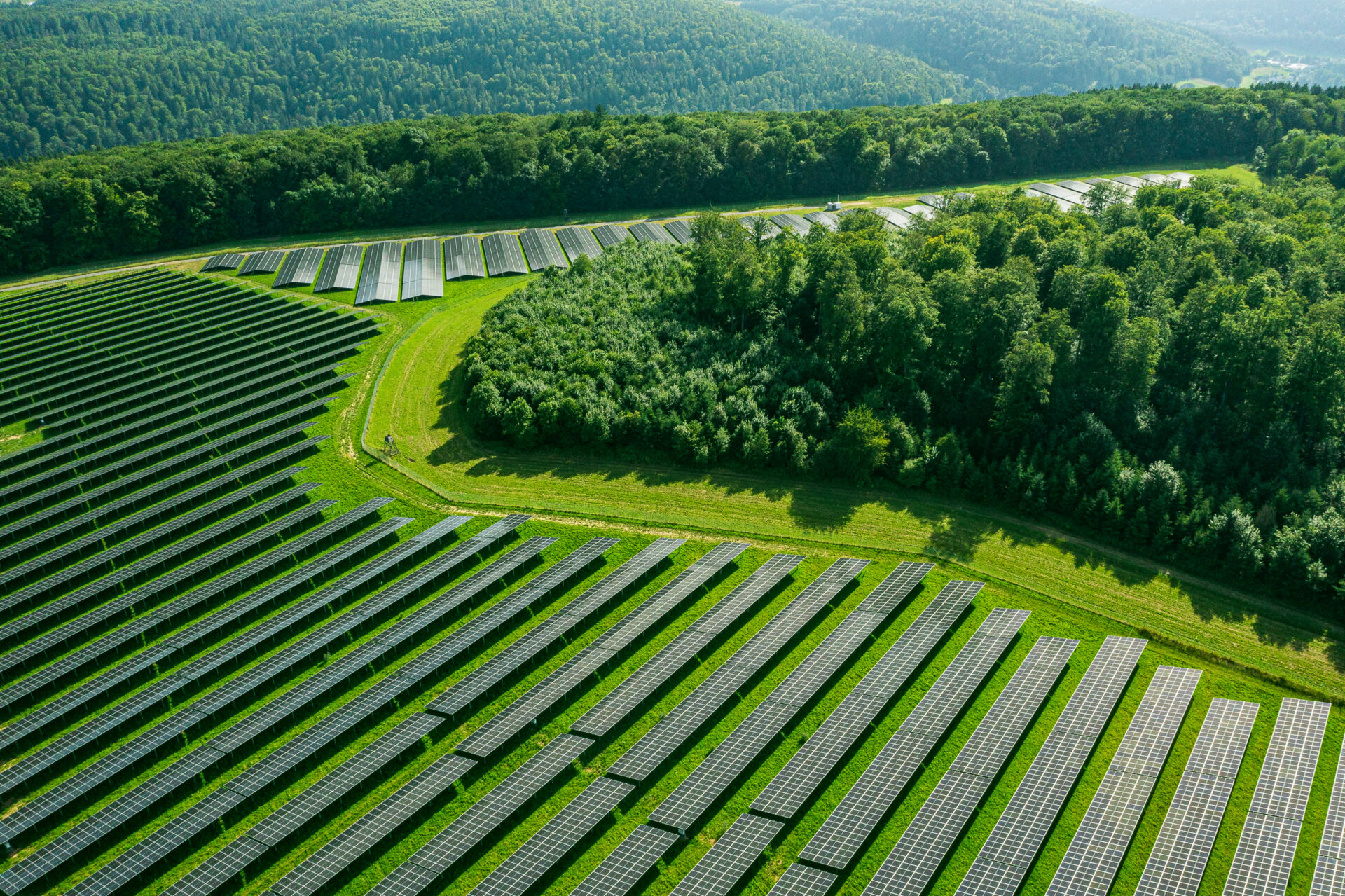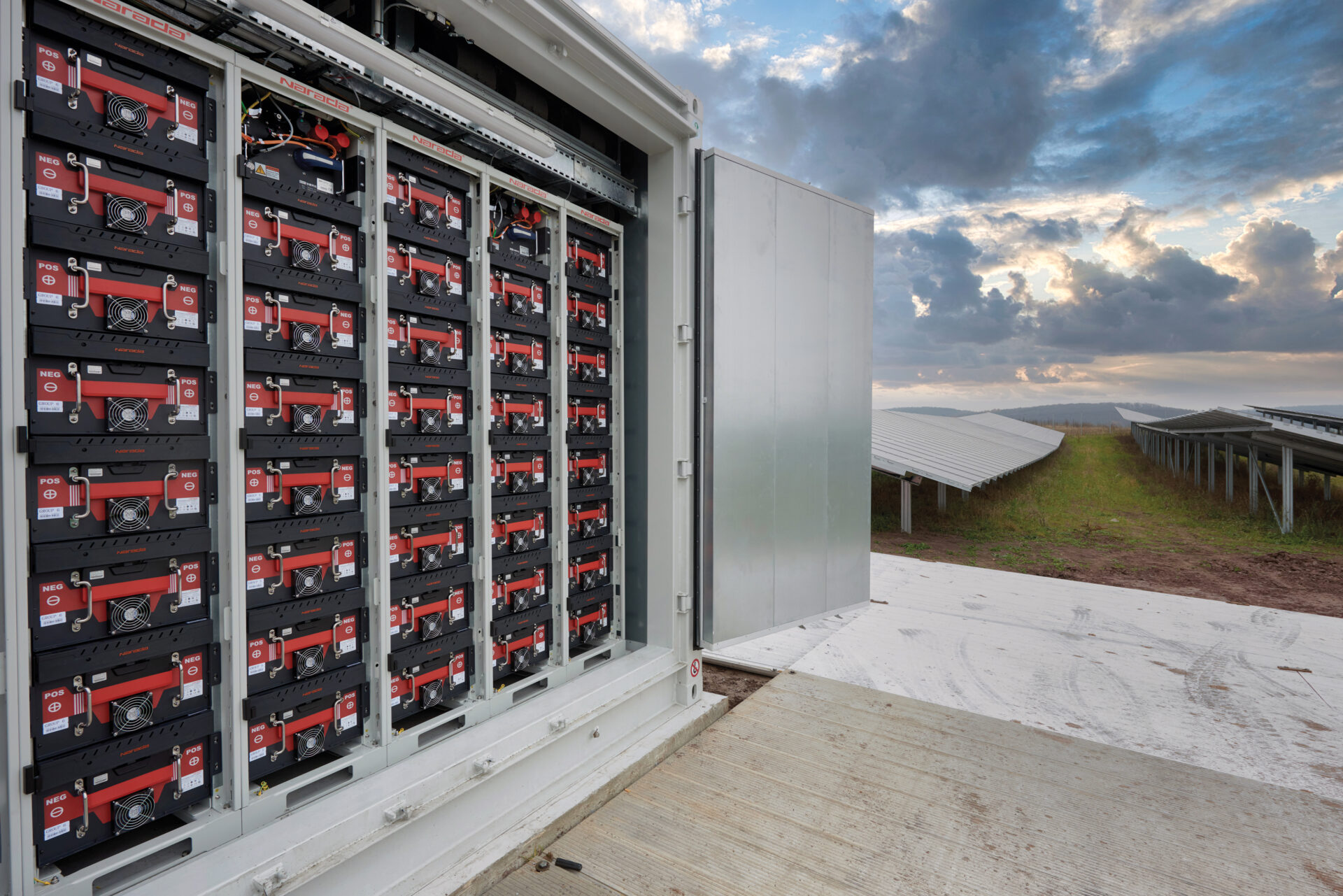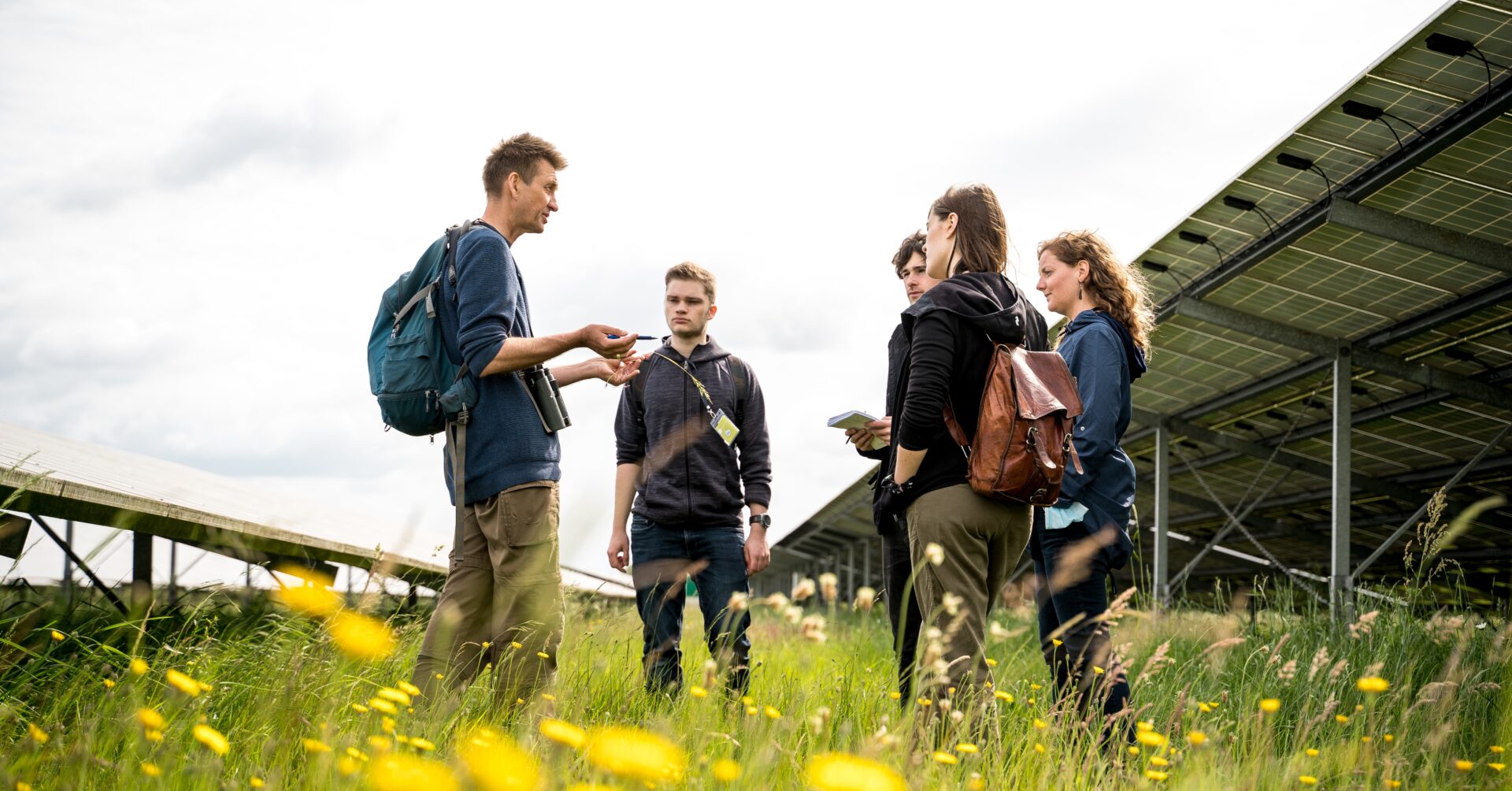How local citizens benefit
Many people can benefit from solar parks, especially local people. However, every municipality is different and the interest in citizen participation varies from location to location. In order to make the construction of a solar park a win-win situation for everyone involved, customised local solutions are needed. The possibilities for participation range from joint project discussions and active public dialogue to the variants of financial participation, which are presented in more detail here.
All local people benefit from municipal participation without having to invest themselves. You can find information on the participation of the local community in the profits of solar parks here here.
Individual financial citizen participation can also be offered in a solar project. The economic factors of solar projects are as individual as the municipalities themselves: As a result, it is unfortunately not possible to offer (several) financial participation options in every project. Speak directly to the project organiser about the possibilities of citizen participation in a specific solar park plan.
Crowdfunding - direct participation in the project
Crowdfunding, also known as crowd investing, is a form of financial participation in a project through a one-off investment at project-specific conditions. Crowdfunding is available for a wide variety of projects in all sectors and areas, and the process and function hardly differ.
Crowdfunding for solar projects can be offered by the project developer in the respective municipality. The framework conditions for those eligible to participate can be customised. For example, a limitation according to postcode areas or the residents of a certain district is possible, but an extension to a region or unlimited national participation is also possible.
Investors can often participate in crowdfunding with a contribution of as little as 500 euros, so that citizens of all income levels can participate.

As a rule, crowdfunding is earmarked for a specific solar project via a project developer's own platform (e.g. via eueco) or an external platform (e.g. GLS Crowd). On an information page for the project, investors can read about the general conditions of the investment and can also view their investment and the project development at a later date.
Crowdfunding offers for photovoltaic projects are often offered over a fixed term of 5 to 7 years and at a fixed interest rate of at least 3 per cent per year. In some crowdfunding offers, longer terms are also realised, with corresponding interest and repayment conditions.
How exactly does crowdfunding work?
In crowdfunding, a group of investors invests in and co-finances a project. They have an investment contract with the respective project company and grant a subordinated loan, earmarked for the respective solar project. In the event of insolvency of the project company, the subordinated loan is only serviced after all other creditors have been repaid. Investors therefore run the risk of losing the entire amount invested. It is therefore worth finding out about the project company and its affiliated companies and adjusting the amount of the investment to the individual financial situation.
A qualified subordinated loan is subject to the German Retail Investor Protection Act and an asset information sheet, which is reviewed by the German Federal Financial Supervisory Authority (BaFin), must be issued to investors. To protect investors, BaFin also sets a maximum investment amount depending on the individual income situation. The maximum investment amount per investor is set at 25,000 euros for crowdfunding.
eueco has summarised further information on how citizen financial participation works and what needs to be taken into account in corresponding guidelines for project developers, municipal utilities and local authorities: https://www.eueco.de/media.
Energy companies - direct participation in the project company
Another form of financial participation is a direct investment in the project company and a percentage participation. In this case, the investors become shareholders, with all rights and obligations as well as opportunities and risks. As a rule, shareholder participation is only interesting for higher investment sums of around 25,000 euros or more.
Depending on the composition of the shareholders and investors, different legal forms can be chosen for the operating company of the ground-mounted photovoltaic system. If private investors such as citizens of the municipality are involved, a GmbH & Co. KG or a limited partnership (KG) is usually founded.
A limited partnership (KG) always consists of one or more general partners with unlimited liability and the shareholders (limited partners). Citizens who wish to have a higher financial stake can participate as limited partners in this way and are only liable for the capital contributed (limited partner's contribution). If the project is successful, they can expect significantly higher returns than with crowdfunding, for example. The operating person usually takes on the role of general partner and thus the management and representation of the limited partnership (KG).
Energy cooperatives - actively shaping the future
Citizens in their region can also jointly realise a solar park in the form of a citizens' energy cooperative. In this variant, however, the initiative and self-organisation of the cooperative members is necessary to first form a cooperative in order to initiate and drive forward a solar project. As a rule, solar parks are realised in partnership with experienced project planners, whereby the cooperative must take the first step to initiate the planning. In a cooperative, members have voting rights and can influence the development of a project through their voting behaviour. Co-operative members finance the solar project themselves and receive a share of the proceeds. Solar parks planned by co-operatives are usually own projects.
Citizens' energy tariffs - favourable green electricity for the community
In addition to direct monetary investment by citizens in a solar park, there is also the option of benefiting financially in the form of local citizen energy tariffs. A Citizens' energy tariff is a discounted electricity tariffwhich can be offered specifically to citizens in the vicinity of solar parks. The exact conditions vary depending on the provider and are offered, for example, as a time-limited quota of electricity at a discounted price. However, it should be noted that although this is discounted (green) electricity, it does not physically come directly from the local solar park.
"Good planning" of solar parks is linked to citizen participation

Citizen participation can be direct or indirect and can take many different forms. It helps to ensure that as many local citizens as possible benefit from solar energy - via the Municipalityvia favourable tariffs or through direct participation in solar projects. The individual requirements of the location and the financing concept must always be taken into account. The bne standard "Good planning for ground-mounted photovoltaic systems" speaks a Clear recommendation for direct citizen participation from.
Around 40 companies have already committed to this standard in order to unite the interests of the energy transition, citizens, municipalities and communities as well as environmental and nature conservation in their solar projects.






